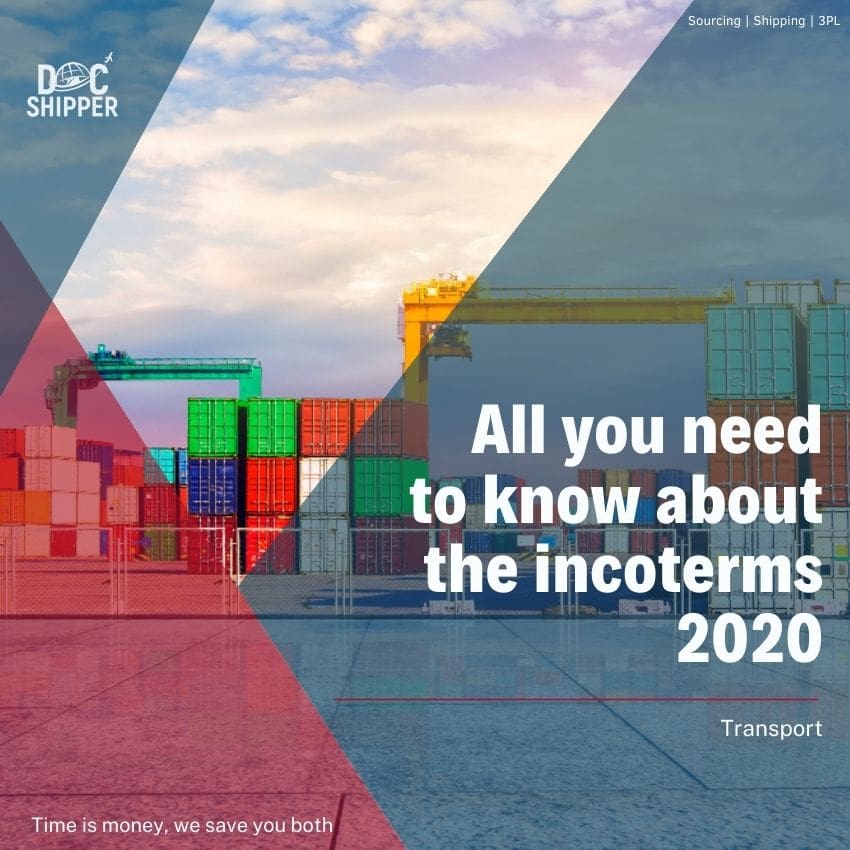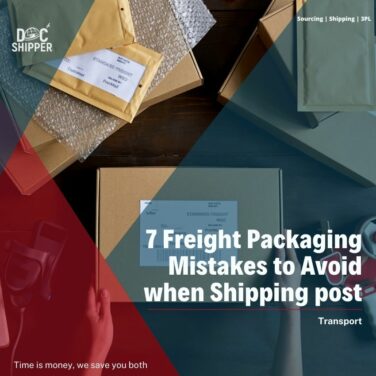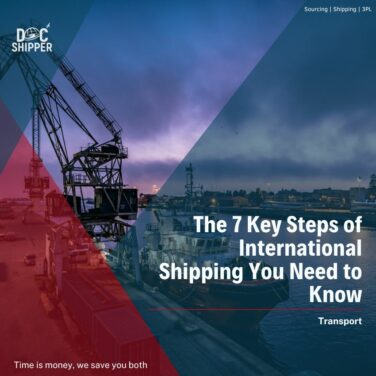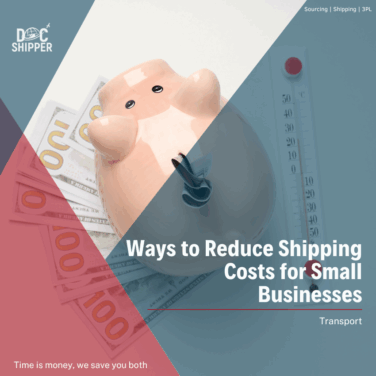You don’t have the time to read this article? Play the bellow button and listen to it!
In an era of globalization, one might think that exporting is very simple. But the reality is different: ways of doing things vary from one country to another, languages, customs, different judicial systems and non-tariff barriers can make life difficult for us. Fortunately, Incoterms offer us an undeniable advantage: predictability. Recognized around the world, they provide a common language for companies working internationally.
What’s an Incoterm?
The term INCOTERM is taken from the English International Commercial Terms (IN. CO. TERMS). It is a series of three-letter terms. These terms reflect the distribution of costs (e.g. transport costs) and risks between the parties. They therefore define certain obligations, costs and risks involved in the transfer of a product. Incoterms will help the buyer and seller to define which of them will bear the costs. They will also make it possible to specify the time at which the risk is transferred. On the other hand, it does not define the transfer of ownership! This confusion is sometimes made, it is the full payment of the invoice, whatever the incoterm used, which allows the buyer to be the owner of the goods.
There is now a list of 11 incoterms that define the sharing of risk and costs between seller and buyer. The International Chamber of Commerce (ICC) has defined new Incoterms to be used as from 01 January 2020, which modify the 2010 Incoterms used until then.
FNM Vietnam Info
DocShipper Info : You want to transport your merchandise from any point of the world but you’re worried about the difficulty of the procedures and the paperwork? You shouldn’t! We will handle this for you and make things easier! Thanks to our services, your goods will be delivered to your doorstep without having to worry. We deal with customs clearance and everything related to transport! So contact us and stop wasting your time!
What is the purpose of an Incoterm?
Once agreement has been reached on prices, product, guarantee, means of payment and applicable law, all that remains is to agree on the transport. That’s when the Incoterms come into play. There are currently 11 (2010 revision). They define which of the buyer or seller bears the transport and ancillary costs (e.g. customs clearance costs, loading, taxes). They also define who bears the risks during transport. Thus, the buyer and seller benefit from legal security throughout the world by integrating an Incoterm into a commercial contract. For example, they may define that the buyer must collect the goods from the supplier by his own means (Incoterm EXW). They may also define that the seller is responsible for all risks and costs related to the entire transport (Incoterm DDP), and that the seller is responsible for including these costs in the price of the goods sold. They are therefore used for any business that needs a supply of goods between a buyer and a seller, whether on the national territory or worldwide.
When should Incoterms be defined?
It is essential to define before a call for tenders which Incoterm best corresponds to the buyer’s needs. Is your company able to manage the transport? Customs clearance?
All these questions must be asked before the RFQ is written. The defined Incoterm must clearly appear on the call for tenders so that suppliers can build their pricing according to the Incoterm chosen. As you have understood, the Incoterm defined will then directly impact the price as well as the logistics of the delivery between the seller and the buyer.
Sometimes, therefore, it is the buyers who define the Incoterm at the time of the call for tenders. Other times it is imposed by suppliers, as is often the case for Asian manufacturers who prefer FOB to make their goods available (this implies that the container is transported on a ship but that the main transport remains to be paid).
FNM Vietnam Info
DocShipper Info : We can take care of shipping your merchandise and delivering it to your doorstep. But how about moving to Vietnam? Thanks to our special service, relocation in Vietnam, we can help you move to Vietnam. Whether you’re moving your office or your house, just contact us and your problem will be solved!
Which Incoterm to choose?
Incoterms can be distinguished according to the mode of transport used. It can be multimodal, i.e. any type of transport, or maritime/river. We can also talk about incoterm of departure and incoterm of arrival.
On the diagram below, we find an overview of the Incoterms 2020
Simplify your life, don’t try to learn them by heart but remember:
- Incoterms that start with an E: are said to be initial incoterms, i.e. the buyer takes care of everything, the seller simply makes the goods available. For example EXW.
- Incoterms that start with an F: these are incoterms whose main transport is not paid for by the seller, it is the buyer who will have to pay for them, for example FOB, FCA or FAS.
- Incoterms that start with a C: these are incoterms where the main transport is paid for by the seller, for example, CIF, CIP, CFR, CPT.
- Incoterms that start with a D: these are incoterms called incoming incoterms, i.e. the buyer takes care of nothing, everything is managed and paid for by the seller. For example DAP, DPU, DDP.
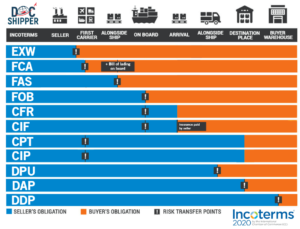
What modification with Incoterms 2020?
Since 1990, Incoterms have been revised every 10 years, with updates in 2000 and 2010. These revisions are carried out in order to comply as closely as possible with the various laws in force. The last revision is applied on 1 January 2020 and affects the habits of importers and exporters.
For the first time, representatives from China and Australia are among the members of the International Chamber of Commerce. Together with representatives from France, England, Germany, the United States and Turkey, they are in charge of proposing the final version of the Incoterms 2020.
Incoterms 2020 are intended to be easier to understand. In any case, this is the wish of the International Chamber of Commerce. The aim is to remove grey areas and provide more clarity for a better understanding. The committee is well aware of the consequences caused by misinterpretations of an Incoterm. Emily O’Connor, committee member, says: “I can tell you that there is a real focus on making the rules easier to understand and use…“.
DocShipper Alert
FNM Alert : With DocShipper, all kinds of transport are available; air, sea and truck freight besides providing you with two extra services: express and multimodal freight! Shipping has never been easier or quicker! Contact us and join our network!
Interview with Jonathan Zarah – Sales manager @DocShipper
Nine years after the 2010 version of the Incoterms, which took effect in 2011, the new update will come into effect on 1 January 2020. A version published in September by the International Chamber of Commerce (ICC) that does not include any major changes from previous versions, according to Jonathan Zarah. A few points of detail need to be explained.
What changes have you noticed in the new 2020 version of the Incoterms just published by the International Chamber of Commerce (ICC), which comes into effect on 1 January 2020?
In the new version, this is an update but not a great revolution. The number of Incoterms is still eleven. Only one of them is evolving seriously. DAT (the Delivered at terminal) becomes DPU, i. e. Delivered at place unloaded.
The onboard bill of lading option added to the FCA
Beyond this change, have you noticed any other minor changes?
There will also be an evolution for the Incoterm FCA (Free Carrier). The 2020 version provides an FCA rule with the option “Bill of Lading on Board”. In this rule, it is the buyer who always manages the transport but if there is a documentary credit, the seller cannot recover the maritime transport document.
In Incoterms 2020, there is therefore an innovation with the bill of lading on board. The buyer and the seller may agree that the seller may obtain the bill of lading. But it is a change that will probably be a source of difficulty.
“The DAT (Delivered at terminal) becomes DPU (Delivered at place unloaded)“
You suggested that the new rules provide for insurance changes for the terms CIP (Carriage and insurance paid to) and CIF (Cost, insurance and freight)…
Indeed, in terms of transport insurance, Incoterms 2020 make the difference in terms of coverage. The term CIP requires all-risk coverage while CIF requires a minimum coverage, namely the “FAP except” guarantee.
Do you have any other new features to comment on in the new version?
First of all, the 2020 version incorporates the notion of own-account transport, or more simply the fact that a seller or buyer uses his own means of transport to transport his goods, i.e. without calling on a transport professional. However, this new feature is only applicable to the terms FCA, DAP, DPU and DDP. Then, the 2020 version includes detailed explanations on how to choose the Incoterms rule most appropriate for a given transaction and also how the sales contract is articulated with other contracts such as the transport or insurance contract.
As for the guidance notes that existed in the 2010 version and that were not part of the Incoterms rules, they are now included in the rules.
FNM Vietnam Info
FNM Info: Did you know that we offer warehousing and packing services? Well, you do now! We can store all kinds of goods depending on your needs, and we can guarantee you that your products are safe with us! As for packing, you wouldn’t have to worry whether your supplier’s packing offer is enough for you, or how and where to pack your goods, because we will do it for you. Contact us and discover the rest of our services!
FAQ | INCOTERMS 2020
Read more
Looking for more? These articles might interest you:
DocShipper info: Did you like this article? You may also like the following:
Need Help with Logistics
or Sourcing in Vietnam ?
First, we secure the right products from the right suppliers at the right price by managing the sourcing process from start to finish. Then, we simplify your shipping experience - from pickup to final delivery - ensuring any product, anywhere, is delivered at highly competitive prices.

Fill the Form
Prefer email? Send us your inquiry, and we’ll get back to you as soon as possible.
Contact us

